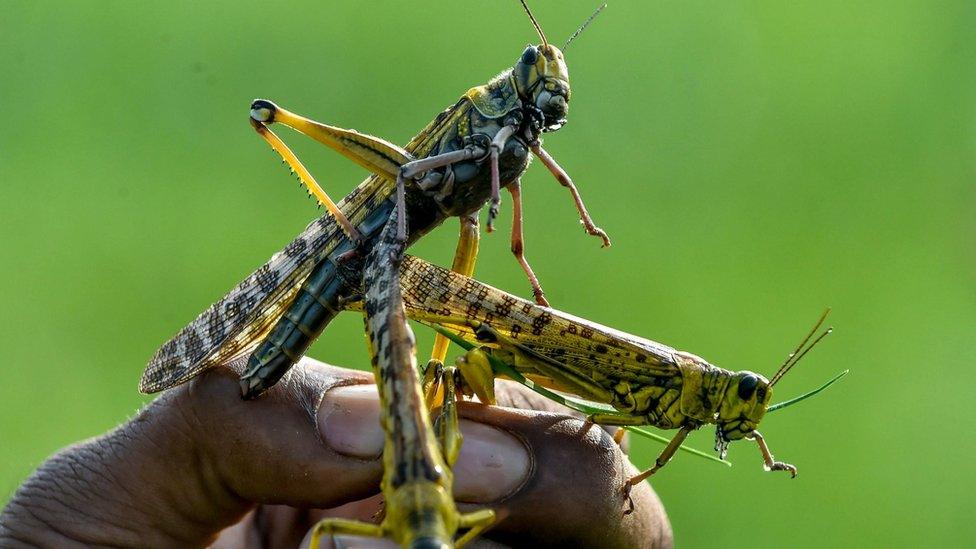Billions of locusts destroy food supply in east Africa
- Published
- comments

Locusts have destroyed thousands of acres of crops in east Africa, meaning more than 20 million people are now facing food shortages.
There have been twenty times more locusts than usual this year. An increase in the amount of rainfall has encouraged them to breed in larger numbers.
The United Nations said that the locusts are "an extremely alarming" threat to millions of people living in east Africa.
Desert locusts are similar to grasshoppers. They tend to feed on crops meant for humans and travel in incredibly large groups called swarms.
The locust infestation makes things much more difficult for the people living in this region who are already struggling with the coronavirus pandemic.
And this is not the first swarm of locusts which has come to east Africa this year - in January Ethiopia and Somalia faced the worst locust infestation they had had in 25 years.
Desert locusts have destroyed crops and food supplies throughout nine countries in east Africa and there are fears that there are larger swarms to come
The desert locusts have been destroying crops throughout Sudan, South Sudan, Eritrea, Djibouti, Ethiopia, Somalia, Kenya, Tanzania and Uganda.
The United Nations' Food and Agricultural Organisation said that a swarm covering one square kilometre contains up to 80 million locusts.
The insects can travel up to 150 kilometres (93 miles) in 24 hours and an adult locust eats its own body weight in food each day.
A million people now need emergency food aid in Ethiopia - one of the countries that has been badly hit by the infestation.
Billions of locusts swarm Madagascar
Sadly, it is thought more swarms might arrive soon which could cause even more damage.
The Food and Agricultural Organisation (FAO) says the number of locusts could increase another 20 times during the upcoming rainy season unless more is done to prevent them.
What can be done to prevent locusts?
The FAO are investing in ways to help them predict the arrival of locusts, as well as ways to spread insecticide from the air.
Insecticide is a chemical that is sprayed on crops - it can kill pests like locusts or put them off eating the plants.
However, some people complain that spraying insecticide can be dangerous and harm other animals.
- Published26 January 2020
- Published9 March 2013
